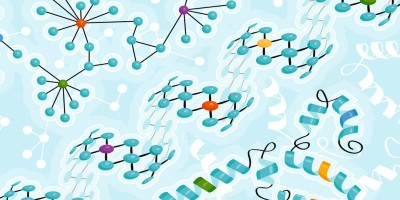In April 2023, scholars and experts met members of the US Congress for the Aspen Institute Congressional Program conference in Bellagio, Italy, to discuss strategies to ensure global food security. Building on her perspective from this meeting, Pamela Ronald highlights the role that plant genetics can have in achieving these goals.
References
Bertini, C. In Strategies to Ensure Global Food Security: U.S. Policies to Sustain Supply, Relief, and Advance Prosperity 94–101 https://www.aspeninstitute.org/wp-content/uploads/2023/06/Report-Bellagio-2023.pdf (Aspen Institute Congressional Program, 2023).
Thompson, Robert R. In Strategies to Ensure Global Food Security: U.S. Policies to Sustain Supply, Relief, and Advance Prosperity 24–50 https://www.aspeninstitute.org/wp-content/uploads/2023/06/Report-Bellagio-2023.pdf (Aspen Institute Congressional Program, 2023).
Hunter, M. C., Smith, R. G., Schipanski, M. E., Atwood, L. W. & Mortensen, D. A. Agriculture in 2050: recalibrating targets for sustainable intensification. BioScience 67, 386–391 (2017).
Zhao, C. et al. Plausible rice yield losses under future climate warming. Nat. Plants 3, 16202 (2017).
Myers, S. et al. Increasing CO2 threatens human nutrition. Nature 510, 139–142 (2014).
Emerick, K. & Ronald, P. C. Sub1 rice: engineering rice for climate change. Cold Spring Harb. Perspect. Biol. 11, a034637 (2019).
Stein, A., Sachdev, H. & Qaim, M. Potential impact and cost-effectiveness of Golden Rice. Nat. Biotechnol. 24, 1200–1201 (2006).
Klümper, W. & Qaim, M. A meta-analysis of the impacts of genetically modified crops. PLoS ONE 9, e111629 (2014).
Shelton, A. M. et al. Bt brinjal in Bangladesh: the first genetically engineered food crop in a developing country. Cold Spring Harb. Perspect. Biol. 11, a034678 (2019).
Barret, C. B. The Global Food Crisis Shouldn’t Have Come as a Surprise https://www.foreignaffairs.com/world/global-food-crisis-shouldnt-have-come-surprise (25 July 2022).
Author information
Authors and Affiliations
Corresponding author
Ethics declarations
Competing interests
The author declares no competing financial interests.
Rights and permissions
About this article
Cite this article
Ronald, P.C. Enhancing sustainable development through plant genetics. Nat Rev Genet 24, 659–660 (2023). https://doi.org/10.1038/s41576-023-00651-4
Published:
Issue Date:
DOI: https://doi.org/10.1038/s41576-023-00651-4
- Springer Nature Limited


